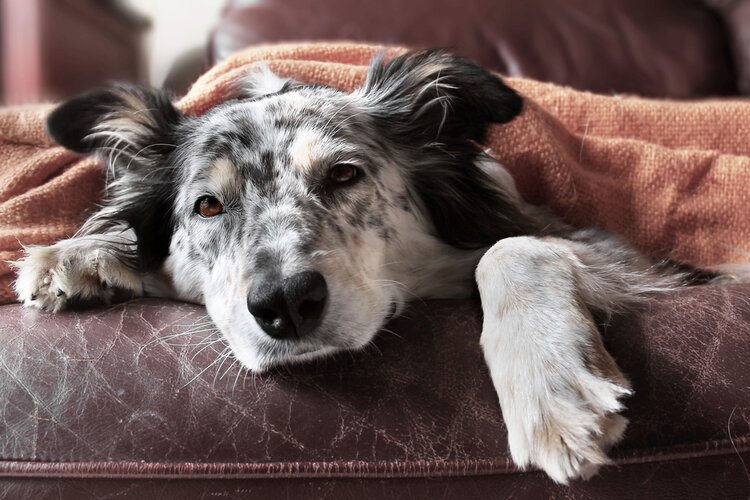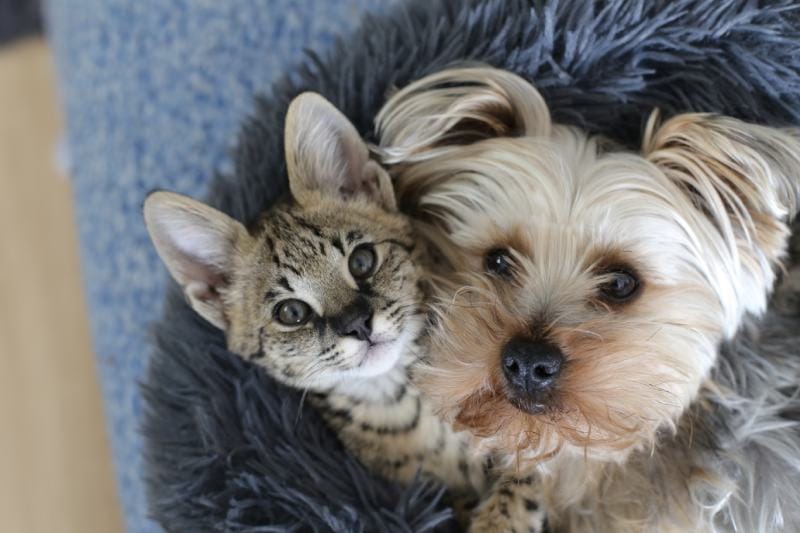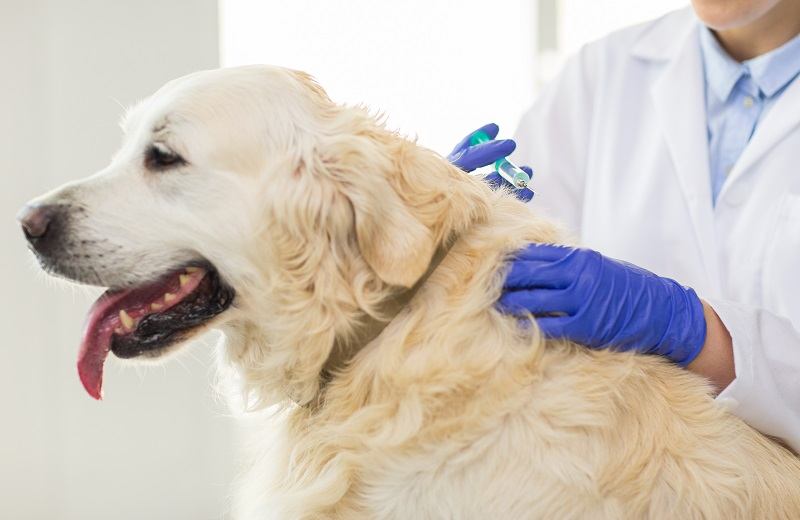Cold and flu season may be winding down across the Northern Hemisphere, but we’re not out of the woods yet. Just like humans, dogs and cats can suffer from “colds,” but can they infect each other? In most cases, dogs can’t catch a cold from a cat because the viruses and bacteria that cause the illness typically only infect one species or the other.
Keep reading to learn more about dog “colds,” including how they catch them, signs of illness, and how to protect your dog. You’ll also learn about one type of “cold” your dog could catch from a cat.
What Is a Dog Cold?
In humans, “colds” are the common term used to describe upper respiratory illness caused by various viruses and bacteria. The same is true of dogs and cats. Most of these organisms can only infect a specific species, meaning they can’t be passed to humans or caught by cats.
In dogs, colds may be caused by several viruses and bacteria, including Bordetella, parainfluenza, adenovirus, and canine coronavirus. Cats get colds from either herpesvirus or calicivirus, which can’t be passed to dogs.
A major exception to this rule is the bacteria Bordetella bronchiseptica, which commonly causes an upper respiratory illness called kennel cough. Both dogs and cats can be infected with this bacteria and pass it on to each other.

How Do Dogs Catch Colds?
So, if dogs rarely catch colds from cats, how do they catch them? Dogs generally catch the viruses and bacteria that cause colds by being in contact with other sick pets or surfaces contaminated by the illness. Many of these organisms are highly contagious and spread quickly anywhere dogs are in crowded locations, such as boarding kennels, doggy daycare, or grooming salons.
Sick dogs spread their illnesses by coughing, sneezing, or nasal discharge, similar to how humans share colds. Your dog can catch a cold by playing with a sick dog or sniffing a floor the ill pup just sneezed on. And, of course, if your cat has kennel cough caused by the bacteria we mentioned, your dog could catch the disease from the kitty.
Like human colds, upper respiratory illnesses in dogs can progress to more severe complications, including pneumonia. When that happens, your dog may have trouble breathing, which requires emergency care.

Signs of a Dog Cold
If your dog has a cold, you’ll likely notice signs that include the following:
- Nasal discharge
- Watery eyes
- Sneezing
- Coughing
- Lethargy
- Decreased appetite
- Fever
If you notice any of these signs in your dog, contact your veterinarian. Not all dog colds require veterinary treatment, but knowing exactly which virus or bacteria is causing your dog’s signs and whether you should be worried can be tricky.
If your dog is still showing signs of a cold after a few days, we suggest you speak to a vet.

If you need to speak with a vet but can’t get to one, head over to PangoVet. It’s an online service where you can talk to a vet online and get the personalized advice you need for your pet — all at an affordable price!
How to Protect Your Dog from Catching a Cold
Many of the viruses that cause dog colds are preventable by routine vaccines. Follow your vet’s recommendations to learn which shots your dog needs for protection and get boosters as required. This precaution is especially important if your dog regularly goes to the groomer’s, doggy daycare, or stays at a boarding kennel.
Don’t let your pup interact with other canines that show signs of illness when out walking or at the dog park. Generally, dog parks have rules against sick animals coming in to play, but some people may ignore those guidelines.
If your cat shows signs of a cold, keep them separate from other pets in the household, including dogs. Make sure to wash your hands after handling a sick cat, especially before petting your healthy pets.

Conclusion
Despite the common view that the two species are mortal enemies, many dogs and cats enjoy a close bond. They may even share beds, toys, or food, but you usually won’t need to worry about them sharing cold germs.
Most of the time, your cat can’t give your dog a cold, and neither can you, for that matter. Help protect your pup by keeping them up-to-date on their shots and contacting your veterinarian if you notice any signs of illness.
- Related Read: 160 Cane Corso Names: Male & Female Names With Meanings
Featured Image Credit: LightField Studios, Shutterstock












